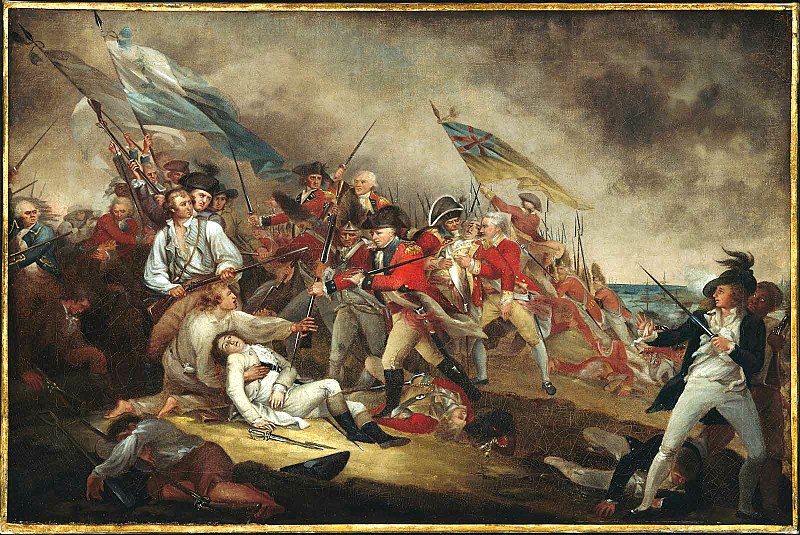mofotechblog.com – Warfare has been an integral part of human history, with conflicts large and small shaping the course of civilizations, empires, and nations. From ancient times to the modern era, wars have been fought for a multitude of reasons, including territorial expansion, religious differences, political power, and economic gain. These conflicts have not only reshaped borders but have also influenced the development of societies, cultures, and technologies. In this article, we will explore some of the most significant conflicts that have left an indelible mark on the world’s history.
Ancient Wars: The Foundations of Empire
The ancient world was a crucible of warfare, where the rise and fall of empires were often decided on the battlefield. The Persian Wars, where Greek city-states fought against the mighty Persian Empire, are a prime example. The Greek victory at the Battle of Marathon in 490 BC and the subsequent defeat of the Persians at the Battle of Salamis in 480 BC preserved the independence of Greek city-states and laid the groundwork for the spread of Western civilization.
Similarly, the Punic Wars between Rome and Carthage were a series of three major conflicts that ultimately led to the rise of the Roman Empire as the dominant power in the Mediterranean. The decisive Roman victory at the Battle of Zama in 202 BC during the Second Punic War marked the beginning of Rome’s unchallenged supremacy.
The Middle Ages: The Clash of Kingdoms and Crusades
The Middle Ages were characterized by the feudal system and the constant struggle for power among European kingdoms. The Hundred Years’ War between England and France, which lasted from 1337 to 1453, was one of the longest and most devastating conflicts of the period. It reshaped the political landscape of Europe and led to significant changes in military tactics and technology, including the widespread use of gunpowder.
The Crusades, a series of religious wars sanctioned by the Latin Church in the medieval period, aimed to recapture the Holy Land from Muslim rule. These wars, lasting from the late 11th to the late 13th century, had a profound impact on the relations between the Christian and Muslim worlds and contributed to the spread of knowledge, trade, and cultural exchange.
The Age of Imperialism: Colonial Wars and Global Conflicts
The Age of Imperialism, from the 15th to the early 20th century, saw European powers expanding their empires across the globe. The Spanish conquest of the Aztec and Inca empires in the 16th century, driven by the quest for gold and the spread of Christianity, resulted in the colonization of vast territories in the Americas.
The Opium Wars between Britain and China in the 19th century were a direct result of British imperial ambitions and the desire to open up Chinese markets. These wars led to the cession of Hong Kong to Britain and the forced opening of Chinese ports, setting the stage for the unequal treaties that would dominate Sino-Western relations for much of the 19th century.
The World Wars: A Century of Global Conflict
The 20th century was marked by two devastating world wars that involved most of the world’s nations. World War I, sparked by the assassination of Archduke Franz Ferdinand of Austria-Hungary in 1914, led to a global conflict that reshaped the political and social order. The war introduced new military technologies and tactics, including trench warfare and the use of chemical weapons, and resulted in the deaths of millions.
World War II, which followed two decades later, was even more catastrophic. It involved the majority of the world’s nations, including all of the great powers, eventually forming two opposing military alliances: the Allies and the Axis. The war saw the Holocaust, the systematic genocide of six million Jews by Nazi Germany, and the use of atomic bombs by the United States against Japan, leading to the unconditional surrender of the Axis powers. The aftermath of World War II saw the emergence of the United States and the Soviet Union as superpowers, setting the stage for the Cold War.
Modern Conflicts: The Struggle for Power and Identity
In the latter half of the 20th century and into the 21st, conflicts have continued to shape the world. The Korean War, the Vietnam War, and the Gulf Wars are examples of conflicts that have had lasting impacts on international relations and the global balance of power.
The dissolution of the Soviet Union in 1991 led to a unipolar world dominated by the United States, but new challenges have emerged, including terrorism, civil wars, and the rise of non-state actors. The September 11 attacks in 2001 and the subsequent War on Terror have had profound effects on global security and the way nations approach conflict and cooperation.
Conclusion
The history of warfare is a testament to the human capacity for both destruction and resilience. Conflicts have been a driving force behind technological innovation, social change, and the redrawing of borders. While wars have caused immense suffering and loss, they have also been catalysts for the development of international laws, human rights, and the pursuit of peace. As we look to the future, understanding the lessons of history is crucial for navigating the complexities of global conflict and striving for a more peaceful world.
